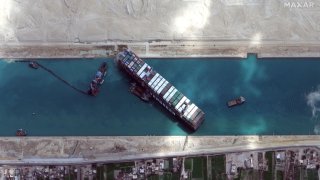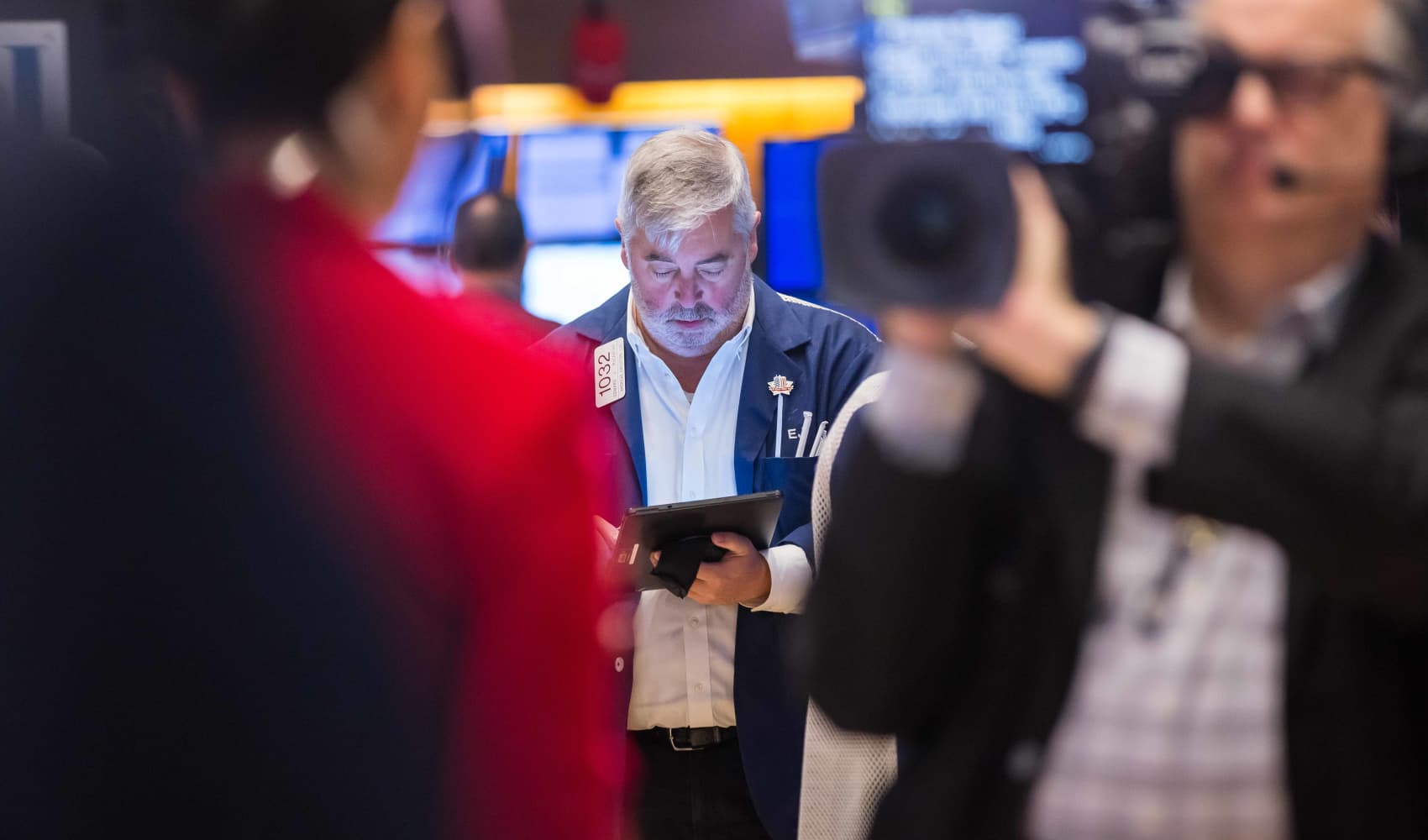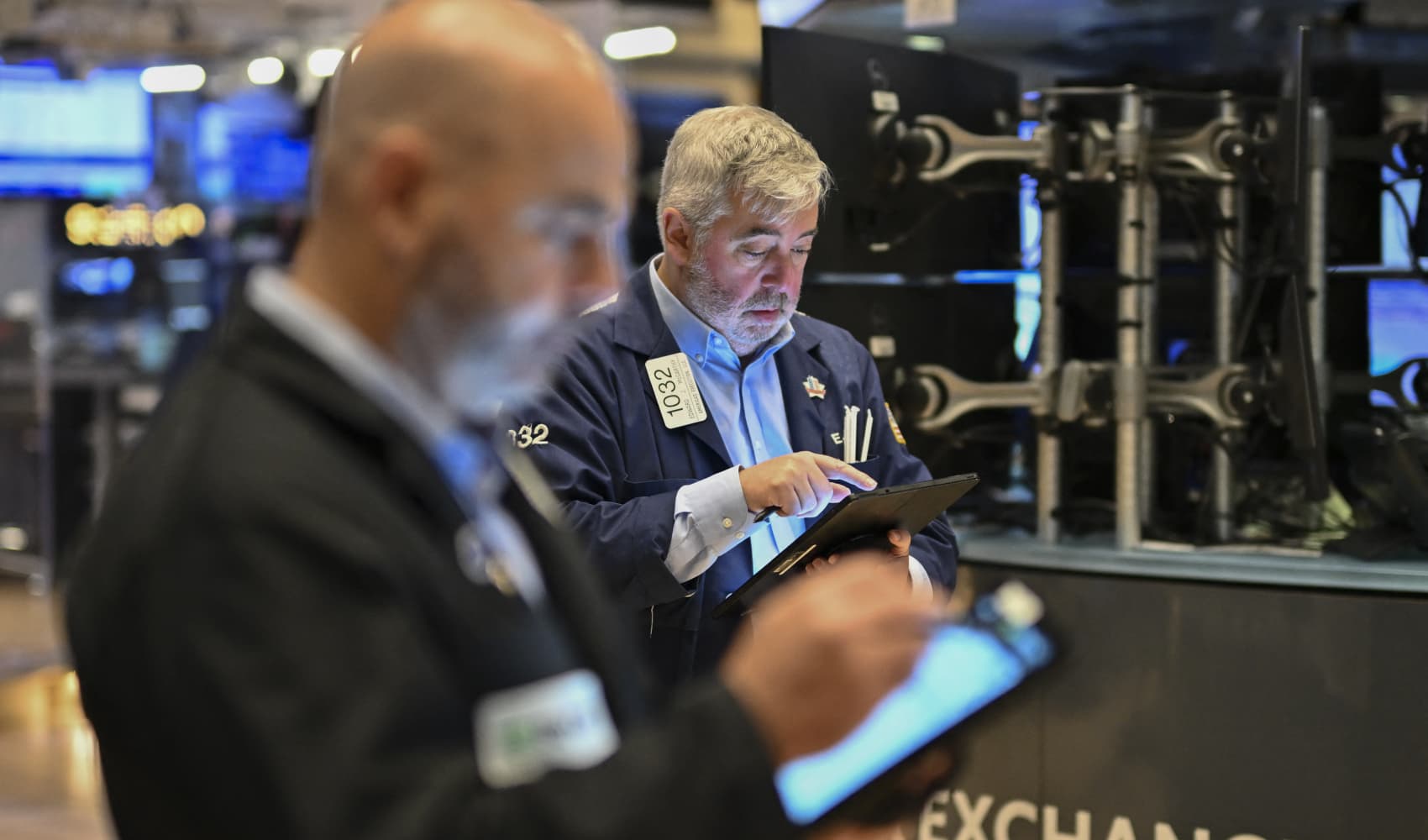
- The Suez Canal Authority said the Ever Given's course has been corrected by 80% and further maneuvers will resume when water level rises later in the day.
- The vessel became stuck Tuesday after running aground while entering the canal from the Red Sea.
- The shipping crisis, now in its sixth day, has added to anxieties over the global supply chain, which had already been impacted by the coronavirus pandemic.
The giant container ship blocking the Suez Canal was partially refloated early Monday, days after the vessel got stuck and brought a vital global trade route to a standstill.
The Suez Canal Authority said the ship, known as the Ever Given, has "responded to the pulling and towing maneuvers." It added that the ship's course has been corrected by 80% and further maneuvers will resume when the water level rises later in the day.
Get top local stories in Southern California delivered to you every morning. Sign up for NBC LA's News Headlines newsletter.
Brent crude futures fluctuated Monday before trading 0.9% higher at $65.18 per barrel while U.S. crude traded up 0.7% at $61.42 per barrel around midday.
It remains unclear what the condition of the stranded ship is and when the canal would be open to traffic. The canal authority said maritime traffic will resume once the vessel is fully floated and directed to the lakes area — a wider section of the canal — for technical inspection.
The statement followed an earlier tweet by maritime services company Inchcape, which said the Ever Given was refloated and being secured.
The Ever Given is one of the largest container ships in the world. It is a 220,000-ton mega ship nearly a quarter-mile long with a 20,000 container capacity. It became diagonally stuck Tuesday after running aground while entering the Suez Canal from the Red Sea.
The ship completely blocked the canal, which is home to as much as 12% of the world's seaborne trade, and caused a traffic jam with hundreds of ships waiting to enter the Suez.
Money Report
Read more
Satellite imagery shows work underway to free ship Ever Given in the Suez Canal
U.S. offers to help open Suez Canal, sees potential impact on energy market
Op-Ed: Suez Canal shutdown highlights another weak link in global supply chain
Maritime data showed at least 10 tankers and container ships changing course to avoid the logjam at the canal. Among them are at least two U.S. ships carrying natural gas for Cheniere and Shell/BG Group.
The crisis, now in its sixth day, has added to anxieties over the global supply chain, which had already been impacted by the coronavirus pandemic. Each day of blockage disrupts more than $9 billion worth of goods, according to Lloyd's List, translating to about $400 million per hour.
Problem not solved yet
Maersk, the world's largest container shipping company, issued an advisory Monday saying the ramifications of the blockage could be long-lasting.
"Even when the canal gets reopened, the ripple effects on global capacity and equipment are significant and the blockage has already triggered a series of further disruptions and backlogs in global shipping that could take weeks, possibly months, to unravel."
The Ever Given ship is not yet fully dislodged and "it is too early to say when the Suez Canal will be cleared for operations again," the shipping giant added.
Fitch Ratings warned on Monday that the blocking of the Suez Canal and resulting disruption to global shipping "is likely to cause a large loss event for the reinsurance industry."
"The ultimate losses will depend on how long it takes the salvage company to free the container ship completely and when normal ship traffic can resume, but Fitch estimates losses may easily run into hundreds of millions of euros" it said.
While the event will reduce global reinsurers' earnings it should not materially affect their credit profiles, Fitch said, although it added that prices for marine reinsurance will rise further as a consequence of the grounding.
Experts told CNBC that problems caused by the Suez blockage will not immediately ease when the Ever Given is freed.
Tim Huxley, director of Mandarin Shipping, said it will take "some time" for traffic that has built up to cross the narrow canal. And when those ships and tankers arrive at their destinations, ports will likely face congestion that will also take time to clear, he added.
"You normally have about 50 or so ships a day going through the canal, obviously at the moment it's about 300 ships backed up ... this is an enormous traffic jam, which is at both ends of the canal," he told CNBC's "Street Signs Asia" on Monday.
"This will take quite a while for the whole supply chain to get back to normal and that's going to have an impact on manufacturers, retailers right across the board," said Huxley.
— CNBC's Matt Clinch, Natasha Turak, Holly Ellyatt and Lori Ann LaRocco contributed to this report.






